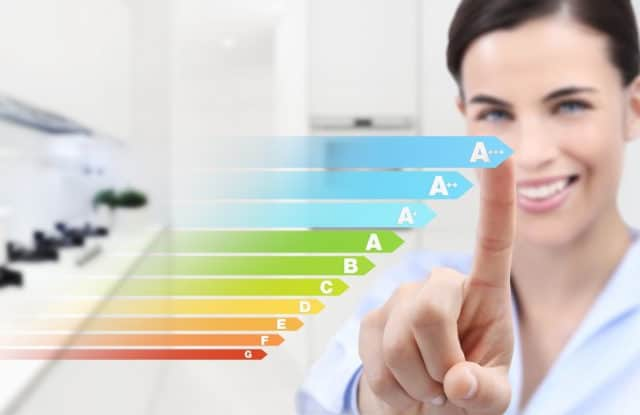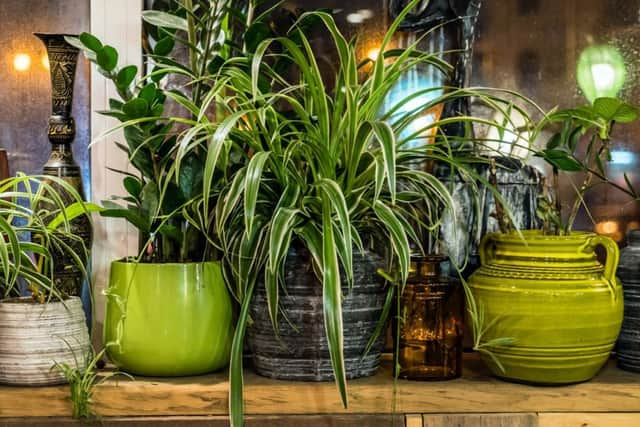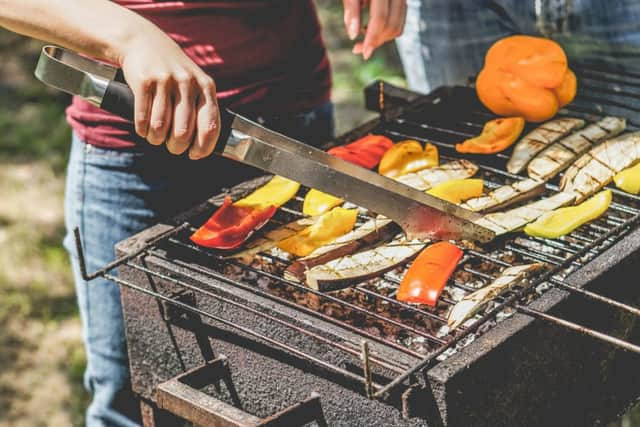Going Green - How energy efficient is your appliance? Advice on choosing


Latest article from Angela Terry
Green Green campaigner and consumer expert, Angela Terry, separates climate change facts from fiction and here she explains how you can take simple, practical steps to help save the planet. Follow @ouronehome & visit https://onehome.org.uk/ for more advice.
Q: Which kitchen appliances should I go for?
A: Your kitchen appliances use lots of energy and water, so it’s a fantastic idea to consider the environment when buying them.


As always, only shell out for a new appliance when your old one needs replacing.
Advertisement
Hide AdAdvertisement
Hide AdThere’s nothing environmentally friendly about ditching perfectly viable machines.
That being said, if your current fridge is over ten years-old, then you may well want to swap it for a new one to save on both energy and bills.
New fridges are significantly more efficient.
Here are my tips for choosing a new appliance ...
Check the energy rating
The most important thing is to check an appliance’s energy rating.
The system for measuring this was updated last year.
Dating back to 2011, the old system included the confusing A+, A++ and A+++ ratings. It had become out-of-date, as energy efficiency technology has moved on.
Advertisement
Hide AdAdvertisement
Hide AdFeaturing ratings A to G, the new system is more realistic and designed to make it easier to choose the greenest product.
A is the most efficient and G the least.
It’s not unusual for machines previously rated A+++ to now be rated B or even C.
The new energy label also features info on water consumption, noise levels and storage capacity.
A QR code on each energy label allows you to find out more about a machine’s specific rating.
Seek independent verification
Advertisement
Hide AdAdvertisement
Hide AdThe consumer experts at Which? have created an Eco Buy badge that’s worth looking into.
It’s only given to appliances that have been independently tested to have a lower carbon footprint while doing their job well over a good timeframe.
Another online source of helpful info is the electricals energy efficiency website Sust-it, which rates all kinds of appliances in terms of their energy efficiency.
Choose the right size of appliances
Overall, washing machines, dishwashers, fridges, kettles and cookers have become more energy efficient over the years.
Advertisement
Hide AdAdvertisement
Hide AdBut, at the same time, the average family fridge, fridge-freezer and washing machine drum have increased in size.
For example, double-doored American-style fridge-freezers with ice dispensers are now much more common in the UK.
Unfortunately, this trend cancels out some of the advances in energy savings. The key is to be realistic about what you actually need. Sometimes, small is beautiful.
Finally, certain appliances, like tumble dryers, require a lot of energy, cost a lot to run and aren’t necessary.
Advertisement
Hide AdAdvertisement
Hide AdYou can save a fortune – and cut your carbon footprint – by going back to drying washing outside.
The perfect combination of solar and wind energy!
Celebrity spot
Death in Paradise star Ralf Little makes it clear on his social media pages that’s he’s concerned about the climate – even though he gets stick for his frequent flights to the Caribbean for his role in the BBC sitcom.


On the Through the Decades Podcast, he said, “I carbon off-set every flight that I take.
It would be better not to fly but I still live in the society in which we are all trapped in that system.”He has also expressed a desire to build his own sustainable house.
Green Swap
Swap bouquets of cut flowers for house plants.


Advertisement
Hide AdAdvertisement
Hide AdMost floral bouquets are full of blooms that have been intensively farmed overseas using lots of water, as well as artificial fertilisers and pesticides. Potted plants last longer and purify the air.
How to make your barbecue more eco-friendly


As summer approaches it’s time to start eating al fresco.
There is nothing us Brits like more than a good barbecue.
Here are some ideas for making it kinder to the environment.
Change your charcoal
In the UK, we use more than 110,000 tonnes of charcoal each year.
More than 90 per cent is imported from abroad.
Sadly, much of it is linked to deforestation in countries like Namibia, Paraguay and Nigeria, where regulations are lacking and both deforestation and pollution are rife.
he answer is to use British charcoal, if you can.
Advertisement
Hide AdAdvertisement
Hide AdThe best is made from the off-cuts of wood left over after forests and woodlands have been sustainably managed in a practice known as coppicing.
The National Coppice Federation has an online list of British Charcoal Suppliers.
You can also order British charcoal from the website Love Logs.
Consider other fuels
When it comes down to it, burning anything is bad for the climate – and that includes charcoal.So does that mean a gas barbecue is better?
According to research, yes.
Advertisement
Hide AdAdvertisement
Hide AdCharcoal barbecues generate about three times the amount of greenhouse gas as gas barbecues.
Of course you’re still burning a fossil fuel so you may want to go one step better and invest in an electric barbecue.
Fume-free and safer than either charcoal or gas, they’re also cheaper to run.
George Foreman makes one or Aldi offers a budget version.
Swap your sausages
To really cut the carbon footprint of your barbecue, consider swapping some or even all of the meat for plant-based alternatives.
Advertisement
Hide AdAdvertisement
Hide AdAccording to the United Nations, the world’s farm animals create a whopping 14.5 per cent of all global greenhouse gas emissions.
Beyond Meat and Meatless Farm offer meat-free burgers and sausages that taste delicious.
Avoid disposables and waste
Try and avoid buying salads in plastic containers.
If you can, make salads from loose veg bought in the supermarket or, even better, from your local farmer’s market.
And if you don’t have enough plates, glasses or bowls in your cupboard, just ask your guests to bring their own rather than your guests using paper plates or plastic cups.
Advertisement
Hide AdAdvertisement
Hide AdLastly, you want to make sure there’s enough food to go round, but don’t overdo it.
It’s worth taking orders from guests in advance, so you can buy just what is needed.
Also remember to have some containers on hand so people can take home any leftovers.
Fact or fiction
Recycling’s the main thing for environment. False!
Top things you can do: tell people your worries, reduce meat intake, ditch petrol or diesel car, insulate your home and ensure your bank and pension don’t fund the oil and gas industry.
For previous articles visit:
Advertisement
Hide AdAdvertisement
Hide AdAdvertisement
Hide AdAdvertisement
Hide Ad